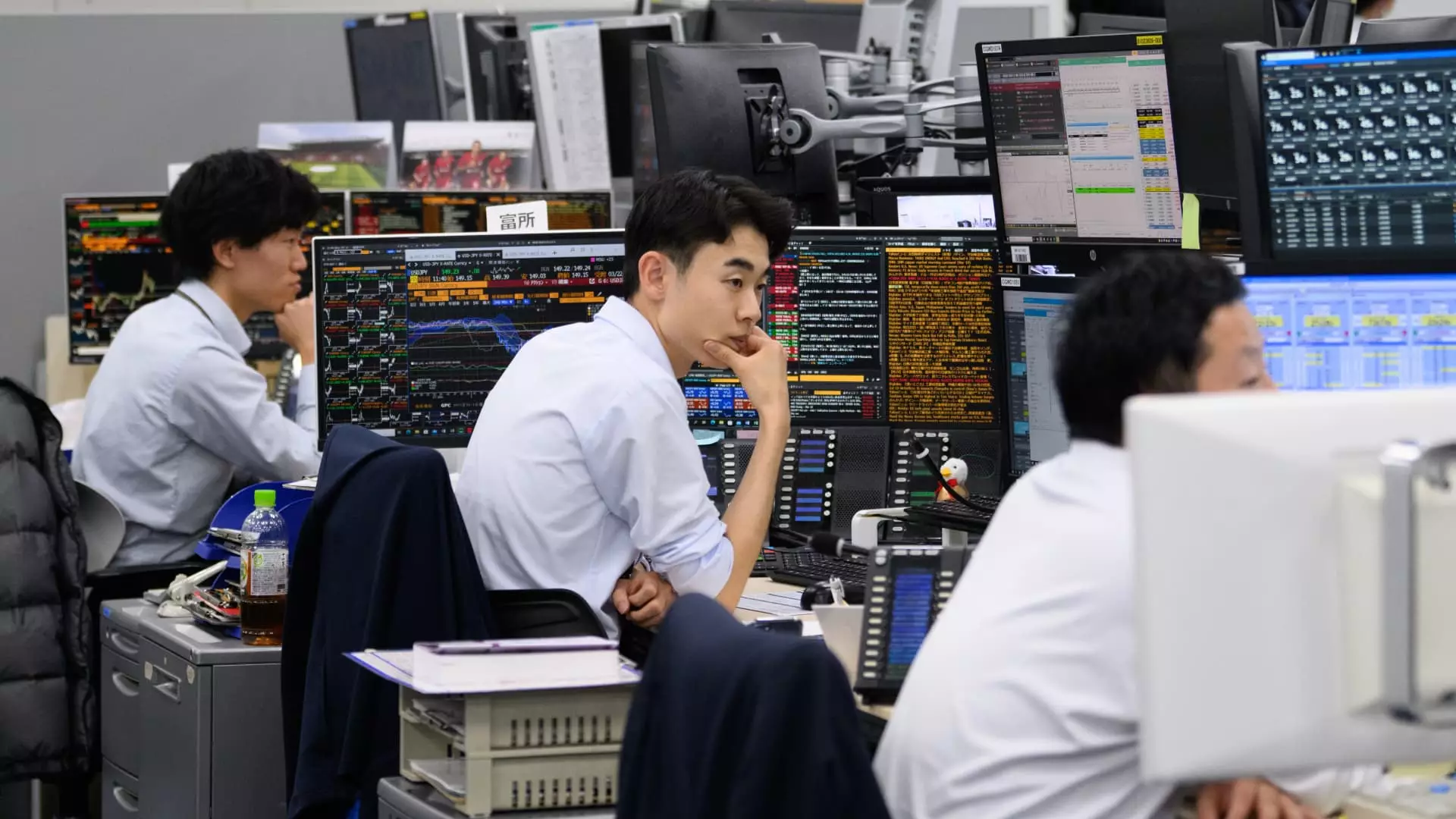The Asia-Pacific markets experienced a slight slip on Monday as traders grappled with the aftermath of Iran’s massive drone and missile attacks on Israel over the weekend. The attack, involving more than 300 drones and missiles, was described by President Joe Biden as “unprecedented.” Despite the gravity of the situation, the U.S. intervened to assist Israel in shooting down a significant portion of the incoming munitions.
Apart from the geopolitical concerns, market participants also had their eyes on key economic data from China and Japan scheduled to be released later in the week. China is set to announce its first quarter GDP numbers on Tuesday, while Japan will release its March trade data and inflation numbers on Wednesday and Friday, respectively. These economic indicators will provide valuable insights into the economic health of two of the region’s most influential economies.
In terms of market performance, Japan’s Nikkei 225 fell by 1.278%, while the broader Topix index was down by 0.76%. South Korea’s Kospi and Kosdaq also experienced losses, sliding by 1.19% and 1.55% respectively. Australia’s S&P/ASX 200 saw a smaller decline of 0.67%. Interestingly, mainland China’s CSI300 index bucked the trend and gained nearly 1%, showcasing resilience in the face of external uncertainties.
Meanwhile, U.S. stock futures responded cautiously to the events unfolding in the Asia-Pacific region. Investors were assessing the implications of Iran’s attack on Israel, along with increased volatility in equity markets that resulted in the Dow Jones Industrial Average posting its worst week of the year. Despite the uncertainties, futures tied to the Dow Jones rose by 0.2%, while S&P 500 futures and Nasdaq-100 futures also edged higher by 0.2% and 0.3% respectively.
Lastly, gold futures, which have been a popular safe-haven asset amid inflationary pressures and geopolitical tensions, experienced a slight retreat to $2,373 an ounce. The precious metal had reached a record high the previous week and has gained 15% year-to-date. The retreat in gold prices could indicate a shift in investor sentiment or profit-taking after the recent rally.
The Asia-Pacific markets have been on edge following Iran’s attack on Israel, with investors closely monitoring economic data releases and market reactions in different countries. The resilience of some markets amidst heightened geopolitical tensions highlights the complex interplay between global events and financial markets.

Leave a Reply